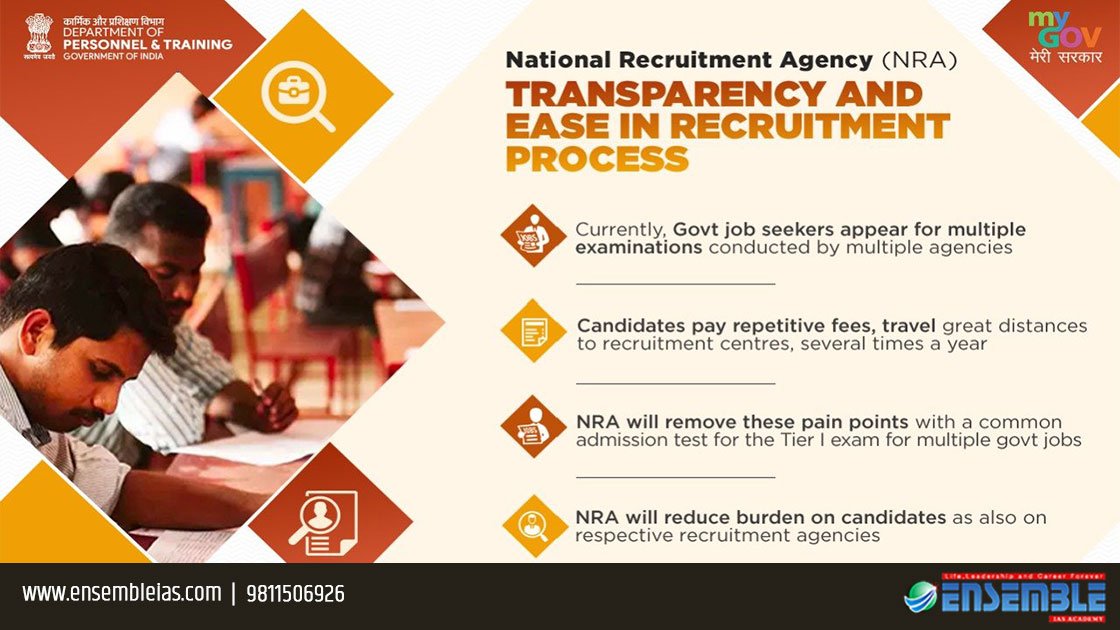NATIONAL RECRUITMENT AGENCY
With rising unemployment due to recent turn of events, India is pushing to fill the void created by covid-19 pandemic. From losing jobs to salary cuts, poor class has seen the worst. Post lockdown, people of different classes are now worried that will they get their livelihood back or not? Although economy is seeing some progress, jobs are yet to come.
As the country starts to reopen, and organisations are preparing their return, Union cabinet chaired by Prime Minister Modi has set up a National Recruitment Agency (NRA) to give India a kickstart in government jobs. By eliminating the cluster of government recruitment organizations, and bringing them under one umbrella, NRA is a medium for providing various government posts in different departments through common exam.
NRA AND IT’S NEEDS
National Recruitment Agency is a central agency established by Indian Government on 19th august 2020 that will conduct a common eligibility test for non-gazetted group C and group D public service post. Ministry of Railways, Department of finance minister services, SSC and RRB are the representatives of NRA. Previously, different organisations used to hold recruitment examination separately which required similar qualification. Filling up forms and paying the fees of numerous forms was a burden on the students.
On 1st February 2020, finance minister Nirmala Sitharaman mentioned National Recruitment Agency in 2020-21 budget speech and on 19th August of that very year, centre launched NRA.
As per union cabinet, NRA will hold common eligibility test (CET) twice a year for different posts. Centre approved 1,517 crore rupees for this project which will not only save time and resources, it will boost transparency on every level from exam to interview.
To buy our online courses Click Here
ALL YOU NEED TO KNOW
Common eligibility test will be held to replace tier I exams held by SSC, Banking and railway boards for recruitment to group C and D posts. For matriculate level, higher secondary level, and graduate applicants separate CET will be conducted. Scores obtained by the candidate will be valid for 3 years.
Common eligibility tests will be held in 12 languages that are in the eighth schedule of the constitution of India. Applicants will be allowed for an unlimited number of attempts. 1000s of centres are proposed with at least one centre per district so that students don’t have to travel far for appearing for the examination. Score of CET will be generated quickly and will be provided to the student and to the agency for improving transparency.
Read Also: Housing must be climate resilient
CONCLUSION
Some of the examinations are still left out of this program which doesn’t completely eliminate the problem. Yet students who fill numerous forms in different organisations also pay the fee which usually adds up to a sum larger than one could expect. A common exam will not only help students to pay one time fee but also save their time. Instead of visiting different centres, preparing for different exams, applicants now just appear. Not only children but even organisations will just coordinate with NRA and get a shortlist of students fit for their posts.
NRA is an attempt to bring transparency and to save time and resources of students and or various organisations. Singularity will not only limit the lengthy process of selection but also helps to process systematically and smoothly.
Author: Amey Sharma
Category: Government Policies
